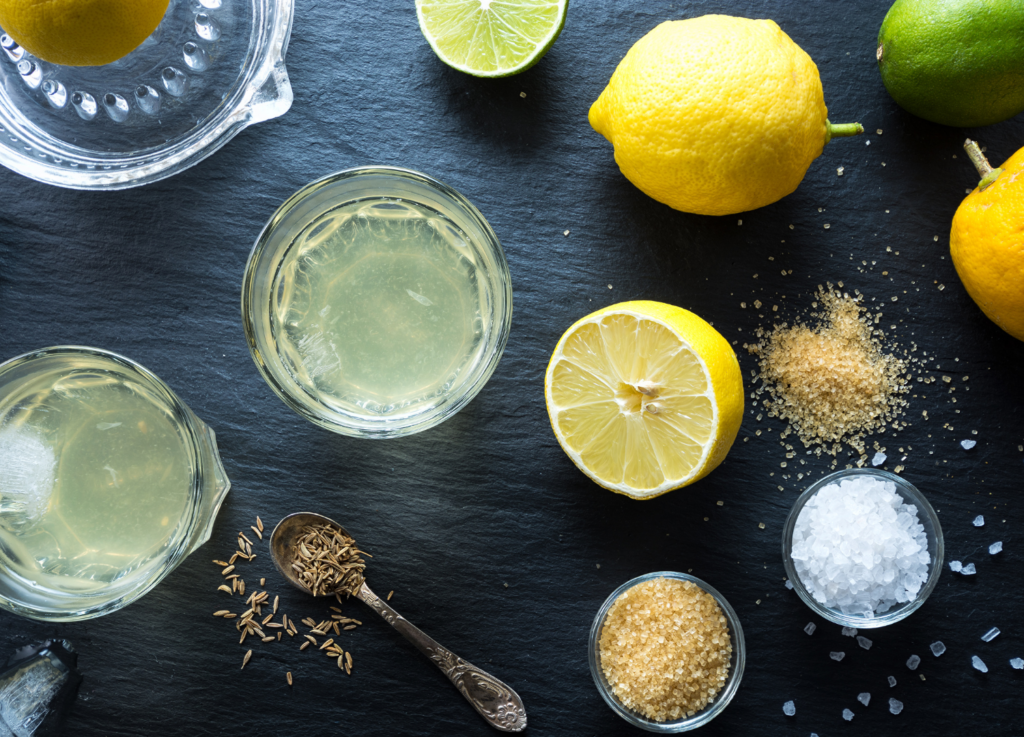How To Use Electrolytes For Proper Hydration When Breastfeeding
December 19, 2021 2025-02-06 15:30How To Use Electrolytes For Proper Hydration When Breastfeeding
How Use Electrolytes For Proper Hydration

When we first think of electrolytes and extra hydration, our minds typically picture sports drinks like Gatorade. However, these drinks are actually not designed for the everyday person (they really are made for athletes) and contain tons of unnecessary sugar or artificial sweeteners. Read on to see why and how to properly incorporate electrolytes while breastfeeding!
What Are Electrolytes, And Why Do I Need Them?
Essentially, electrolytes are trace minerals that help move fluids from one part of the body to another. Since breast milk is a bodily fluid, electrolytes help transfer the milk from where it is produced to where it needs to be. On a cellular level, these essential trace minerals such as magnesium, potassium, sodium, chloride, calcium and phosphate help drive water through the cell membrane, hydrating the entire cell. This is great for heart health, muscle health and even energy levels. Especially in hot weather where we are sweating while producing milk, it is extra important to optimize hydration.
What Are The Best Electrolytes For Lactation?
The great thing about electrolytes is that there are options for everyone, and some are considered galactogogues, which means they may actually give your milk supply a boost!
Electrolyte hydration packets
If you aren’t the biggest fan of water and prefer flavored drinks, it is safe to use an electrolyte hydration packet once a day. There are a variety of flavors for you to try, and they are great to use on the go or keep in your bag. They contain Vitamin C and Vitamin B, as well as trace minerals. **If you are taking a daily multivitamin, please speak to your doctor before using electrolyte packets to ensure you are not going over your daily recommendations for certain vitamins.**
Coconut water
This is nature’s sport drink! It is great for replenishing electrolytes and staying hydrated, however it is also high in natural sugar. Use it sparingly and be cautious of serving sizes. You don’t need more than 6-8oz at a time!
*Pro tip* add a small pinch of sea salt to your coconut water to break up the sweetness.
Tea
Some teas not only contain electrolytes, but also are thought to support healthy milk production.
Red raspberry tea, a popular choice during pregnancy, is an excellent source of potassium, a mineral for which most of us have a deficiency.
Nettle tea, although contraindicated in pregnancy, is another good source of electrolytes for breastfeeding mothers. It contains high levels of iron, calcium, potassium, folic acid, B vitamins, vitamin K, and essential amino acids.
Lemon
Squeeze some lemon into your water! Lemons contain sodium, magnesium and potassium, which will all help you hydrate on a cellular level while promoting energy. Balancing your overall pH is important for overall health, but also for electrolytes. The alkalinity in the lemons will help with this as well!
Sea Salt
Need something right away and don’t have any lemons, electrolyte packets or teas on hand? Sodium is an electrolyte, too! Grab a tiny glass of water (a shot glass will do), add a pinch of salt and drink; then, follow it up with a regular glass of water. Sea salt also has traces of magnesium and potassium which will continue to help replenish your body.
Leafy Greens
We all know we are supposed to incorporate leafy greens into our diet, but did you know these foods also contain electrolytes? Kale, spinach and collard greens are a rich source of calcium and magnesium. Try adding them to your morning smoothie!
Should All Of My Drinks Contain Electrolytes?
Not every single drink needs to contain electrolytes, but ideally 1-2 drinks a day should contain them. On a day where you partake in exercise or even go on a walk, you may want to have more electrolytes than on a day where you are relaxing at home. When you are sick (especially with GI issues) you tend to be dehydrated and lose electrolytes more quickly than normal, causing your milk supply to decrease as well. So this would be a time where you would want more of your drinks to contain electrolytes. Also for coffee drinkers- caffeine is a diuretic, meaning that it causes you to lose liquids quickly. If you regularly drink coffee or caffeinated beverages, make sure you are replenishing your body. Likely you will see an improvement in your milk volume as well as your energy levels once you start staying properly hydrated through electrolytes.
***The information provided on our website is intended solely for general educational and informational purposes only. It is neither intended nor implied to be a substitute for professional medical advice. Always seek the advice of your physician for any questions you may have regarding your or your child’s medical condition. Never disregard professional medical advice or delay in seeking it because of something you have received in this information.***



